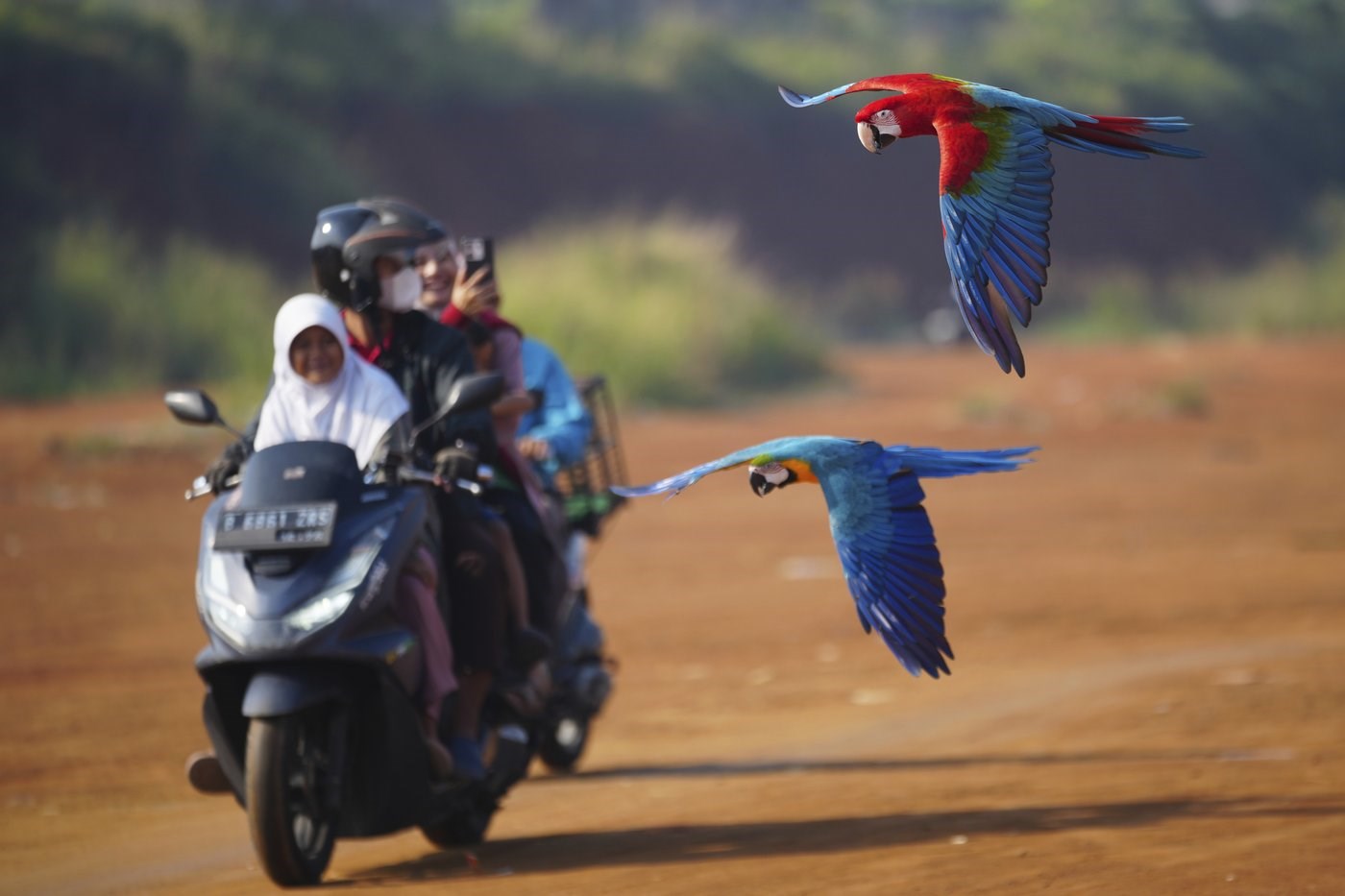
Macaws fly past a family on a scooter during a training session in a field in Depok, on the outskirts of Jakarta, Indonesia, Saturday, Aug. 16, 2025. (AP Photo/Tatan Syuflana)
September 15, 2025 - 8:12 PM
DEPOK, Indonesia (AP) — With two brightly feathered macaws perched on his hands, their long tails brushing against him, Albi Albar Ramli balanced on his motorbike on a Saturday morning before heading off to an open field near his home.
Behind him, six more macaws waited inside wooden boxes strapped to the passenger seat, ready for their training. Ramli was on his way to join fellow macaw enthusiasts from the surrounding area, turning a vacant lot into a lively gathering place for both birds and their keepers.
On the training field, the 33-year-old Ramli taught the birds to fly and return within three minutes when he blew his whistle, in preparation for a competition of obedience and cohesiveness among birds within the group.
Ramli’s passion for birds began in 2018 when he kept small parakeets, but soon he dreamed of caring for larger, more elegant species like macaws. Inspired by videos on social media showing birds returning faithfully to their trainers after flying freely, the 33-year-old decided to leave his job as a motorcycle mechanic to focus on this new path.
That dream became a reality in 2020, when an exotic bird owner entrusted him with Zoro, a striking Blue and Gold macaw. Zoro was the first macaw Ramli trained, and the bond they built was the start of his journey into the life of the charismatic parrots that are native to South America.
Today, Ramli keeps 18 of them in an adjacent part of his home, where he lives with his small family in a rural area of southern Jakarta. It is almost like running a school for macaws.
Each bird has a name and a personality he knows well.
There is Lexus, a Shamrock macaw with a bright red crown, and Wel, a Shamlet macaw marked by vivid orange on its head. They are just two among the hybrid species under his care.
Ramli not only takes care of the birds by feeding them everyday and cleaning their cages twice a week, but he also grooms their feathers to keep them looking bright and neat.
Through this bond, he established himself as the leader of the flock, ensuring that no matter how far they flew in a competition, they would always find their way back to him.
“These animals are no different from humans. Some are quicker to understand what we command, while others take a while to catch on,” Ramli said.
He has never set a specific price for caring for and training the birds, and only accepts what the macaw owners are willing to give him.
With the help of two friends, he has participated in a number of competitions in the Greater Jakarta area. He does it not only to win prizes, but also to show the results of his daily care and training.
“I really love birds. It is like I have a special affection for them. And then there is another thing. I am proud to take care of the expensive birds, which is quite an amount of money that I probably couldn’t afford otherwise,” Ramli said.
News from © The Associated Press, 2025